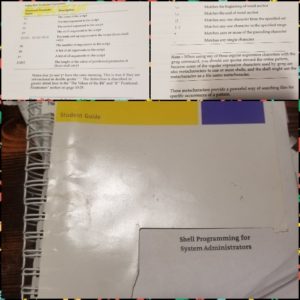Solaris changed our industry. But according to reports, the Solaris operating system may be nearing death. Oracle, who acquired Sun Microsystems in 2010, has laid off most of the remaining staff who were working on Solaris. There will be support for the OS until 2030, but this news feels like it needs a memorial.

My personal memories of Solaris
In my first sysadmin job, I was a Solaris sysadmin. It was probably the coolest place I’ll ever work: the Computational Facility at the Harvard Smithsonian Astrophysical Observatory. I learned to be a real admin. I did backups by command line. I went to class at Sun to learn shell programming. For me, watching the demise of this operating system is bittersweet.
The slow shift away from Solaris
Solaris was developed with Sun hardware, and that was a rock solid combination. However, when x86 architecture became popular, Sun hardware seemed slow by comparison. About this time, Linux became available in several enterprise versions. This is when Linux in the enterprise started to take off.
In my first job, we started using RedHat Enterprise to get the faster speeds. I was put on a project where we hardened the kernel so it would be just as secure as our Solaris installs. Since we also had all Sparc hardware (desktops, monitors, mice), we also had to write drivers for these things since they didn’t exist. Enterprise software that is not quite ready for prime time sounds familiar, doesn’t it?
Solaris vs Linux was the precursor to dev vs ops
I think that the Solaris vs Linux debate was another early place that set up the current ops vs dev wars. In our case, the astrophysicists who developed the programs to see stars far beyond the stars wanted an operating system that ran on faster hardware. We had to make it happen in a secure, repeatable way.
I was looking for the background of the name Linux – I was always told it meant Linux Is Not UNIX. I found this thread on the Ubuntu forum that talks about the origins. Some of the reasons tossed about:
Gnu’s not Unix
To obtain UNIX Certification, one must pay for and pass the Open Software Laboratories UNIX cert tests. You don’t pay to pass the certs, you are NOT UNIX.
UNIX is an old OS developed by AT&T, it has since evolved into BSD. Linux is a POSIX compliant kernel for an OS that is known as GNU/Linux in some circles. It is completely compatible with UNIX but shares no code with it whatsoever it was a completely independent project by Mr. Linux Torvalds.
Solaris changed our industry by paving the way to containers
I learned the original technology that containers are built on from using Solaris. UNIX is where chroot began; chroot is a UNIX command that gave us a way to restrict a user to a specific commands in a certain file system (or subset of a filesystem). I did this for SFTP servers in Solaris. Solaris Zones was the first container system introduced, back in Solaris 10 (2004).
Remembering the early days
The thread took me back to the early days, and made me think about how much those early days remind me of today’s dev/ops and on-premises debates. Hearing that Oracle has laid off a good portion of the Solaris staff makes me remember that in our world, nothing lasts forever. But everything we do is built on a common shared history. Solaris changed our industry, and it’s good to light a candle and remember those contributions.

Gina, the threads of the evolution of various operating systems would make a fascinating study. Think of how Windows and OS/2 are intertwined, including the dropping of the DOS version in favour of the NT kernel which was meant to be OS/2 until MSFT pulled out. Also look at the mainframe and various flavours of operating system there, including the original VM, MVS and others. Also there are platforms like VMS which was written in part by Dave Cutler and influenced NT.
Solaris is one of many “Unix” variants, so I think we could map out the history in lots of ways and again it would be interesting to see. Are there any good books that map out the history?
I think that would be super interesting. There used to be hierachies – almost like family trees. I’ve never seen a book, may be a great idea though!